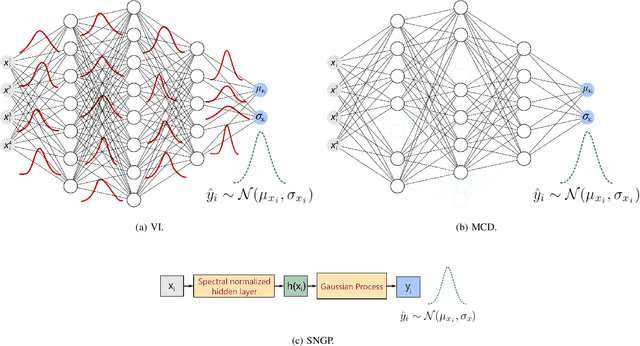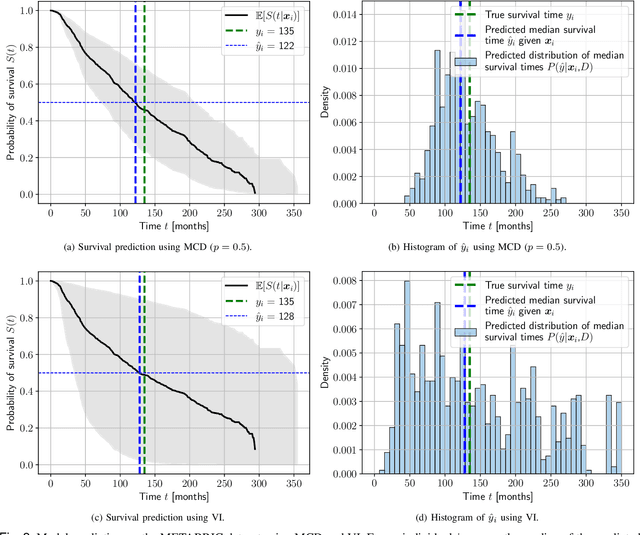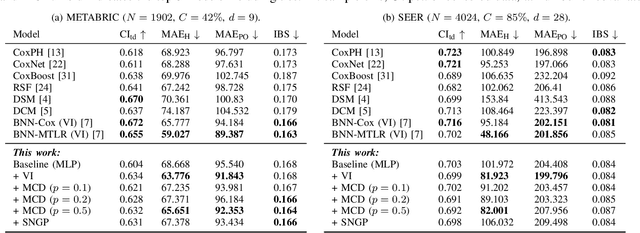Probabilistic Survival Analysis by Approximate Bayesian Inference of Neural Networks
Paper and Code
Apr 12, 2024



Predicting future events always comes with uncertainty, but traditional non-probabilistic methods cannot distinguish certain from uncertain predictions. In survival analysis, probabilistic methods applied to state-of-the-art solutions in the healthcare and biomedical field are still novel, and their implications have not been fully evaluated. In this paper, we study the benefits of modeling uncertainty in deep neural networks for survival analysis with a focus on prediction and calibration performance. For this, we present a Bayesian deep learning framework that consists of three probabilistic network architectures, which we train by optimizing the Cox partial likelihood and combining input-dependent aleatoric uncertainty together with epistemic uncertainty. This enables us to provide uncertainty estimates as credible intervals when predicting the survival curve or as a probability density function over the predicted median survival times. For our empirical analyses, we evaluated our proposed method on four benchmark datasets and found that our method demonstrates prediction performance comparable to the state-of-the-art based on the concordance index and outperforms all other Cox-based approaches in terms of the mean absolute error. Our work explicitly compares the extent to which different Bayesian approximation techniques differ from each other and improves the prediction over traditional non-probabilistic alternatives.
 Add to Chrome
Add to Chrome Add to Firefox
Add to Firefox Add to Edge
Add to Edge